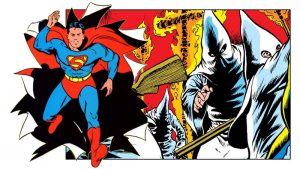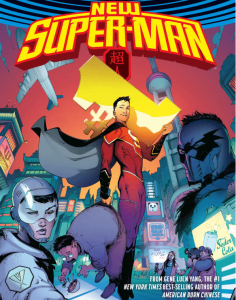Recently, I was listening to one of the episodes of the new podcast Capetown, which features many of the same personalities that were involved in the too-short lived It’s A Bird, It’s A Plane, It’s a Podcast that focused on Superman.
Now, it is easy in our modern world to dismiss Superman, in large part because we all think we know and understand the story of the guy who is the strongest on Earth. But in the midst of that current knowledge, we lose sight of his origins in a much different time politically that still has ramifications for us today.

Jerry Seigel and Joe Schuster were two Jewish kids from Cleveland who created Kal-el as Clark Kent in the era of rising antisemitism across Europe and the rise of Hitler, even as America tried to hold itself out of the conflict. The story goes that the Superman story and his standing for justice didn’t escape the notice of the Nazis, as he was discussed among the propaganda leaders of the Nazis as American GIs carried comics with them once America entered into the war.
But even beyond the comics, Superman quickly became an icon, and took over nearly every form of media that existed at that time. And by 1946, Superman had a radio show that needed villains now that the Nazi and Japanese threats had been ended. They found their muse in a rather unusual place: the Ku Klux Klan!

Stetson Kennedy was an American born and raised in the South who after the war managed to infiltrate the Klan in an effort to undermine them and their actions. He ultimately began to feed the information he was collecting to the proper authorities and also the writers of the Superman radio show. And over the course of 16 episodes of Superman and the Clan of the Fiery Cross, they managed to do some significant work in undermining the Klan, particularly among the younger people who were Superman’s biggest fans! (You can listen to the whole radio drama at the link above, but in particular, the last episode, where the leader of the Clan is revealed to just be a money hungry charlatan stands out. Honestly, the words we hear would still do us well to listen to them today, which is both illuminating and sad. You can hear more about this where I first discovered it, on the introduction of this episode of This American Life, #205 Know Your Enemy.)

With that history, it isn’t surprising that DC and other entertainment companies want to tell the story in a new way. Two movie studios are at work trying to bring Kennedy’s personal story to the big screen, in particular his leaking of Klan secrets to the radio show and authorities.
And DC Comics recently announced an effort that seems to be dealing with this story as well: Gene Luen Yang’s Superman Smashes the Klan, which is a part of its recently announced DC Zoom line, which will target middle school aged readers. He is a particularly excellent choice as a creator because he has received strong marks for his own works, like American Born Chinese, as well as his work on the Avatar comics based on the Nickelodeon television show and his New Super-Man title at DC, where a teenage boy from Shanghai inherits Clark Kent’s powers.
But above all, all of this reminds us of something that most comics fans have tended to suppress or misunderstood. Comics have always been a commentary of what is happening in our world. Certainly, the Superman radio series of that day wasn’t subtle about it. And today, we have creators being just as vocal and to the point about what the changes that they need to see in the modern world. Art will always be a commentary on the world it is made in and the world that it wants to exist in. Comics are no different, for good and bad.

